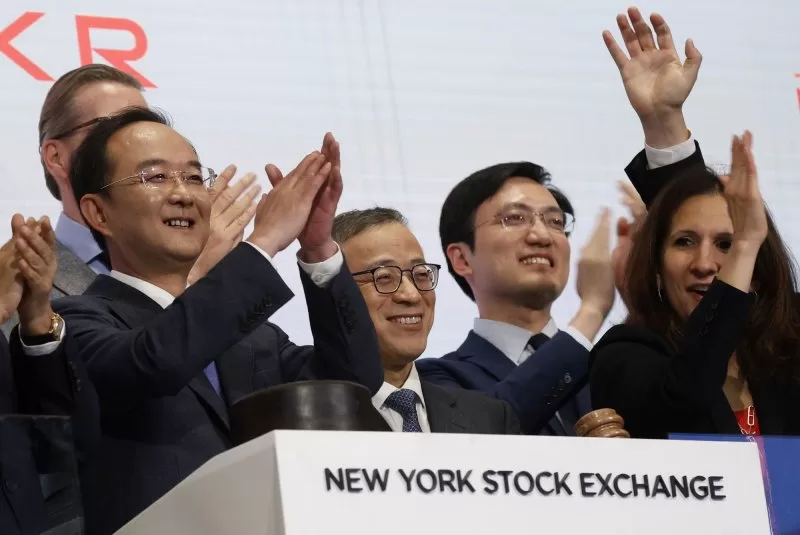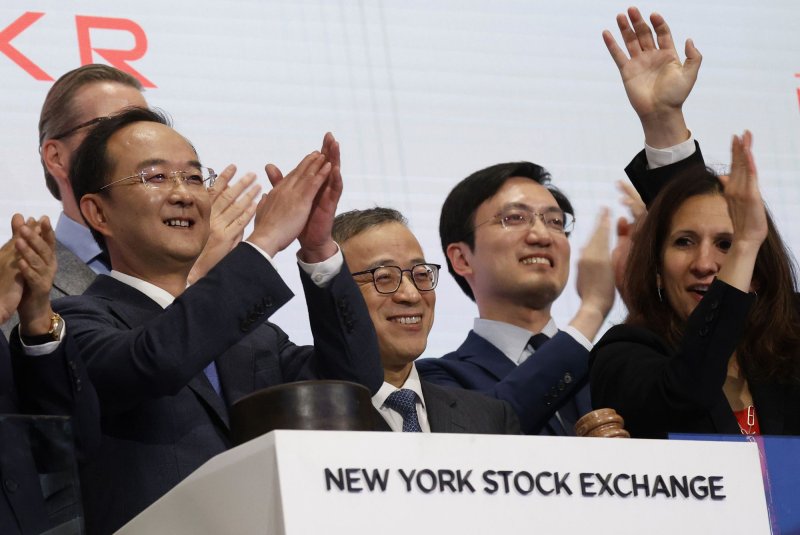1 of 5 | Chinese EV Maker Zeekr joined the New York Stock Exchange on Friday, and its initial public offering sold 21 million shares to raise $441 million. Zeekr representatives (pictured) rang the opening bell at the exchange on Wall Street in New York City on Friday. Photo by John Angelillo/UPI |
License PhotoMay 10 (UPI) — Chinese electric vehicle maker Zeekr, owned by Geely, was listed on the New York Stock Exchange on Friday. Shares climbed some 38% for a potential $7 billion valuation in Zeekr’s initial public offer.
EV fortunes can fall as far and fast as they rise, but Zeekr sold 21 million shares, raising $441 million as it seeks to expand beyond China.
The company is seen as a potential Tesla competitor.
“Our sales gap with Tesla keeps on narrowing,” Zeekr CEO Andy An told CNBC in a translated interview.
Zeekr builds several luxury EVs.
An said Zeekr plans to expand to Europe and Latin America later this year. Right now, it sells EVs in Sweden and the Netherlands.
Zeekr’s stock exchange debut in the United States is powered by Goldman Sachs, Morgan Stanley, Merrill Lynch and China International Capital.
The company intends to set up business in eight countries by 2025.
So far the company hasn’t revealed any EV launches in the United States, but it is partnering with Waymo to build a self-driving EV ride-hail vehicle through tech integration. The launch date is unknown.
In an SEC filing May 3, Zeekr said it will use stock exchange proceeds for “development of more advanced BEV technologies, as well as expansion of product portfolio; or selling and marketing, and expansion of our service and charging network; and for general corporate purposes, including working capital needs, to support our business operations and growth.”

